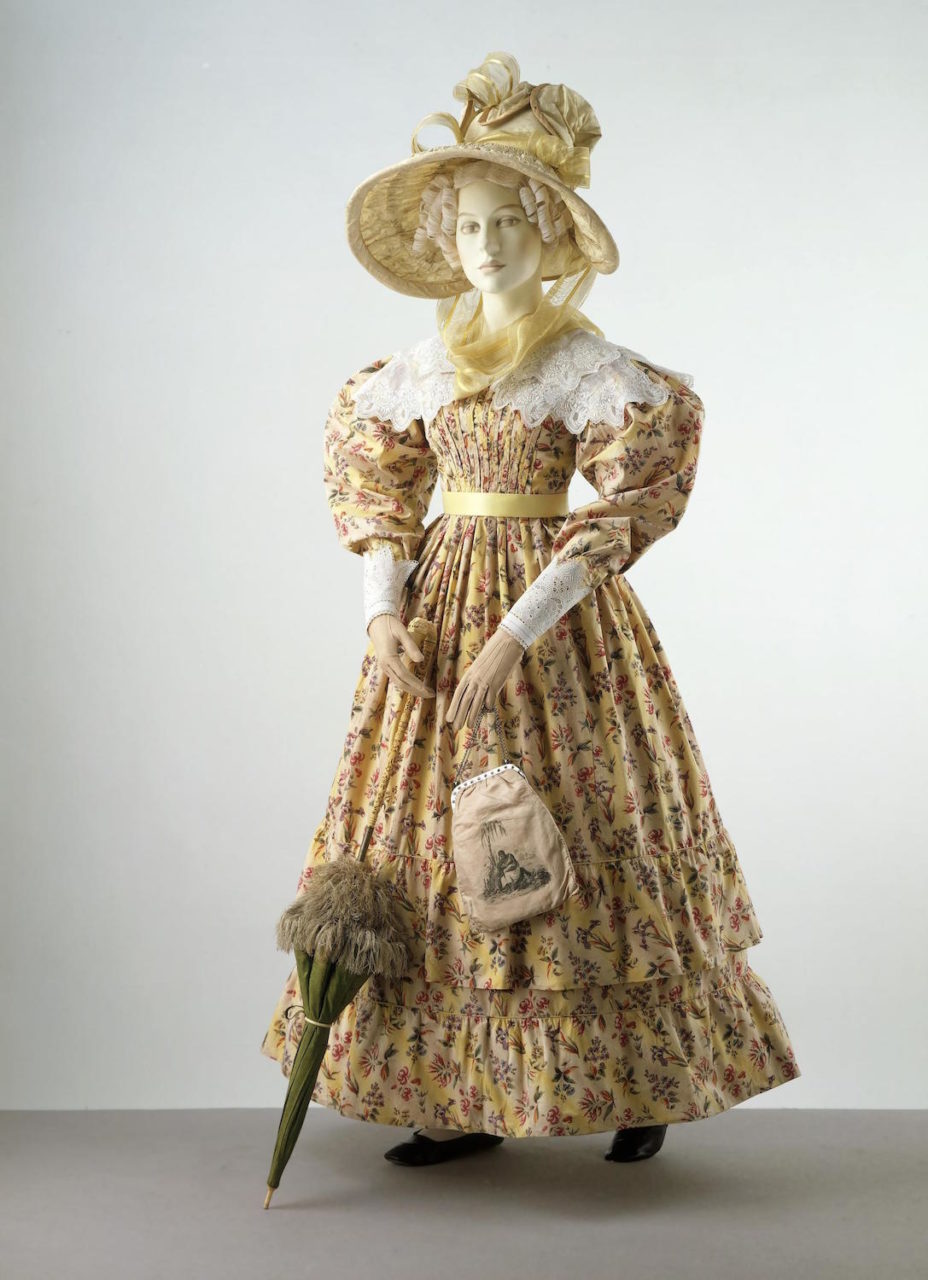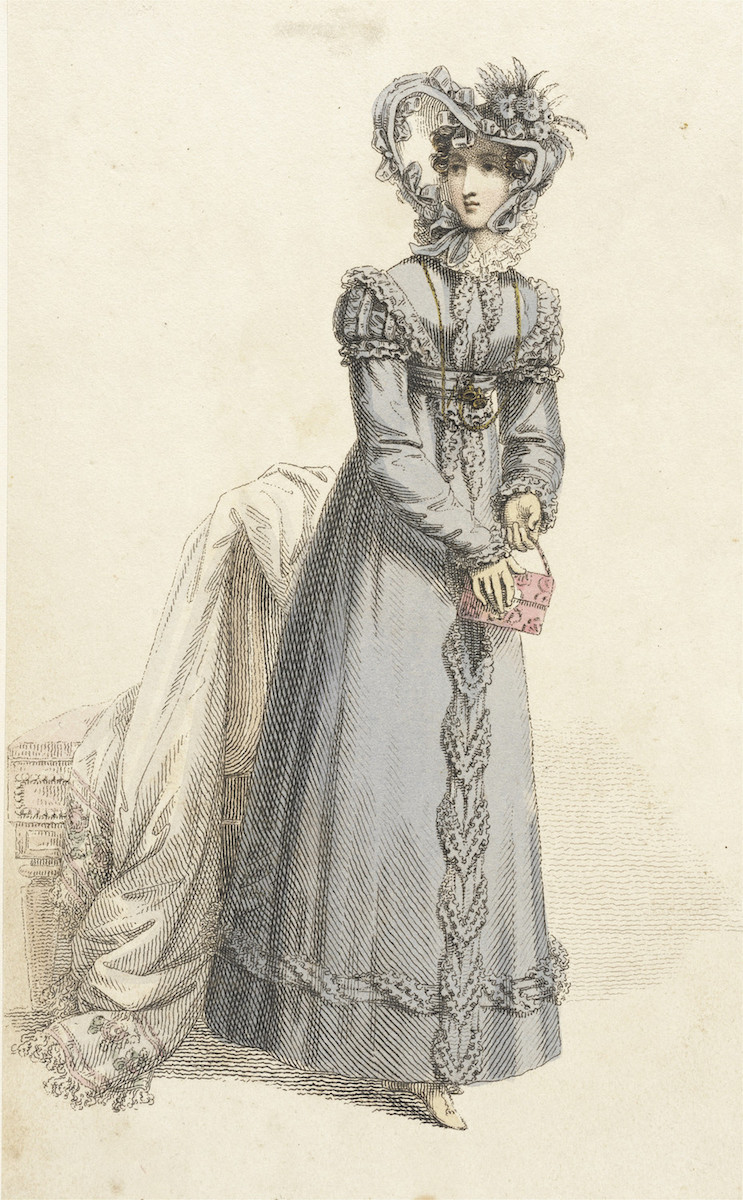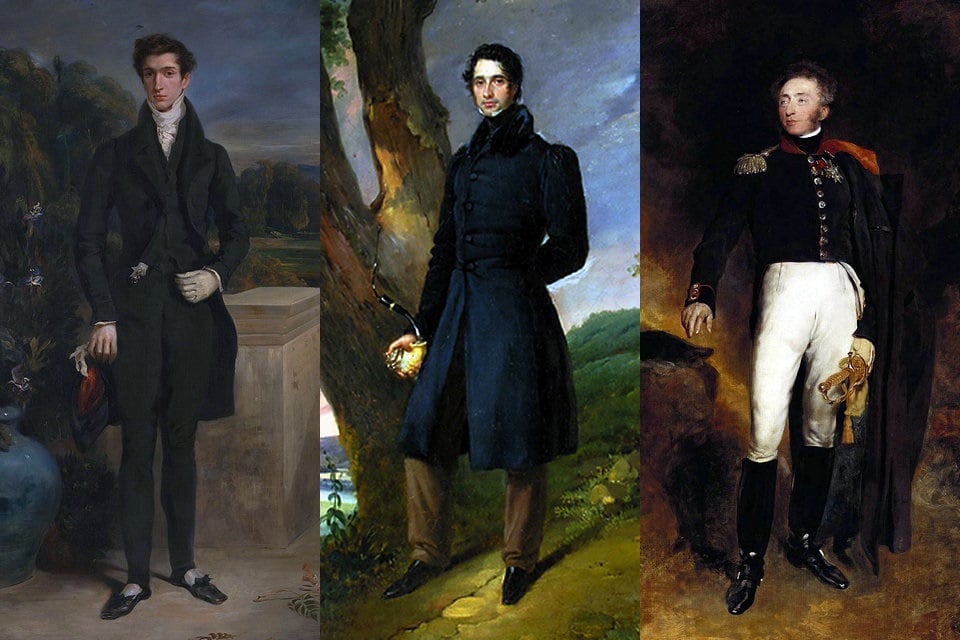
17 Best images about 1820s Women's fashion on Pinterest Day dresses, Taffeta dress and Sleeve
OVERVIEW The nineteenth century opened with a fashion landscape that was changing dramatically and rapidly from the styles of a generation earlier. The French Revolution brought fashions that had been emerging since the 1780s to the forefront. Neoclassicism now defined fashion as both men and women took inspiration from classical antiquity.

1820s fashion 1820s fashion, Historical dresses, Fashion history
According to an 1820 edition of La Belle Assemblée, popular sleeves for evening dresses at the beginning of the year were "short and full." Meanwhile, flounces or borders of lace, ribbons, and flowers were all the rage. Below is a British ball gown made of silk satin and silk net, embroidered with metal and trimmed with blonde lace.

The 1820s in Fashionable Gowns A Visual Guide to the Decade Author Mimi Matthews
Women's Fashion 1820-1825. The years 1820-1825 served as a transition period between the former Empire style and the new Romantic style. During this period, the waistline slowly descended back to it normal position as skirts gradually increased in fullness.

18201829 Fashion History Timeline
882. The 1830s was another transformative decade in 19th century fashion. Like the 1820s, it was a span of years which stood between the Regency era (1811-1820) and the Victorian era (1837-1901), providing a bridge from the often extreme, gigot-sleeved confections of the 1820s to the tight-sleeved, form-fitting bodices of the 1840s.

1829 Fashion History Timeline (2023)
Historical overview and fashions Early 1800s (1800-1829) Technological innovations At the turn of the 18th century, the Western world - namely Europe and the United States - were revelling in the prosperity of the rapid progress that came with the rise of the Industrial Revolution. [1]

1820s fashion in 2020 Fashion, 1800s clothing, Romantic period
1820 - 1830s: Defining Respectability. As the Industrial Revolution spread through the eastern states, factory work drew people from the countryside to rapidly expanding cities. At the same time, thousands of migrants were moving to the newly opened land in the "West," which in this time extended as far as Illinois and Missouri. As families.

Pin on 1820s Fashion
The 1820s were a transitional period away from the "Empire" silhouette and Neoclassical influences. Instead, Romanticism became the chief influence on fashion, as Gothic decoration lavished dresses and historicism inspired styles borrowed from past centuries.

1825, United Kingdom Velvet dress Corsage, Samantha, Vintage Outfits, Vintage Fashion
The Peak of the Romantic Era 1825-1835 The neo-Gothic influence in fashion history dress fashions was at its peak during the Romantic Era between 1825 and 1835. The romantic spirit in fashionable dress lasted until the late 1840s. Anglomania After the Napoleonic wars became a memory, French fashion was dominated by a new wave of Anglomania.

Pin on Fashion 1820s
During the 1820s in European and European-influenced countries, fashionable women's clothing styles transitioned away from the classically influenced "Empire"/"Regency" styles of c. 1795-1820 (with their relatively unconfining empire silhouette) and re-adopted elements that had been characteristic of most of the 18th century (and were to be char.

1820, America Cotton morning dress Historical dresses, Fashion history, Fashion
The Culture of Clothing: Dress and Fashion in the Ancien Régime. New York: Cambridge University Press, 1994. New York: Cambridge University Press, 1994. Rothstein, Natalie, ed. Barbara Johnson's Album of Fashions and Fabrics .

1820 dress history of fashion 18001820 Pinterest
Fashion in the period 1810-1820 in European, or the Regency Style fashion, adds elegance and lightness. This period coincides with the Empire style fashion in France. This era signaled the loss of any lingering neoclassical, pseudo-Grecian styles in women's dress. This decline was especially evident in France due to the Emperor Napoleon's.

Men’s fashion in 1820s HiSoUR Hi So You Are
1795-1820 in Western fashion In the early 1800s, women wore thin gauzy outer dresses while men adopted trousers and overcoats. Rutger Jan Schimmelpenninck and his family, 1801-02, by Pierre-Paul Prud'hon Madame Raymond de Verninac by Jacques-Louis David, with clothes and chair in Directoire style. "Year 7", that is 1798-99.

1820s fashion plate france. Magazine unknown
1800s fashion provides a fascinating window into the values, politics, and world events at the turn of the 19th Century. Long gone were the extravagant bourgeois styles of the early to mid 1700s. Instead, fashionable gowns were simple and restrained, featuring empire waistlines and white or pastel flowing fabrics.

1820s fashion plate 1800s Fashion, 19th Century Fashion, Vintage Fashion, Historical Costume
According to an 1820 edition of La Belle Assemblée, popular sleeves for evening dresses at the beginning of the year were "short and full." Meanwhile, flounces or borders of lace, ribbons, and flowers were all the rage. Below is a British ball gown made of silk satin and silk net, embroidered with metal and trimmed with blonde lace.

Women’s Fashion During the Regency Era (1810s to 1830s) All About Canadian History
1820. By the 1820s, the silhouette of gentlemen's fashion was beginning to change. Coat sleeves began to puff at the shoulders, chests swelled out, and waistlines narrowed to an often extreme degree. This hourglass silhouette—frequently enhanced with padding and corsetry—would remain fashionable into the early 1830s.

1820 British Silk Dress.(Image via Met Museum) Historical dresses, Fashion, 1820s fashion
During the 1820s in European and European-influenced countries, fashionable women's clothing styles transitioned away from the classically-influenced "Empire"/"Regency" styles of ca. 1795-1820 (with their relatively unconfining empire silhouette) and re-adopted elements that had been characteristic of most of the 18th century (and were to be characteristic of the remainder of the 19th century.